Why do algae grow in pools? Expert solutions for clear, problem-free water
These expert-approved tips will ensure your water will cure algae fast – for a protist-free pool for longer
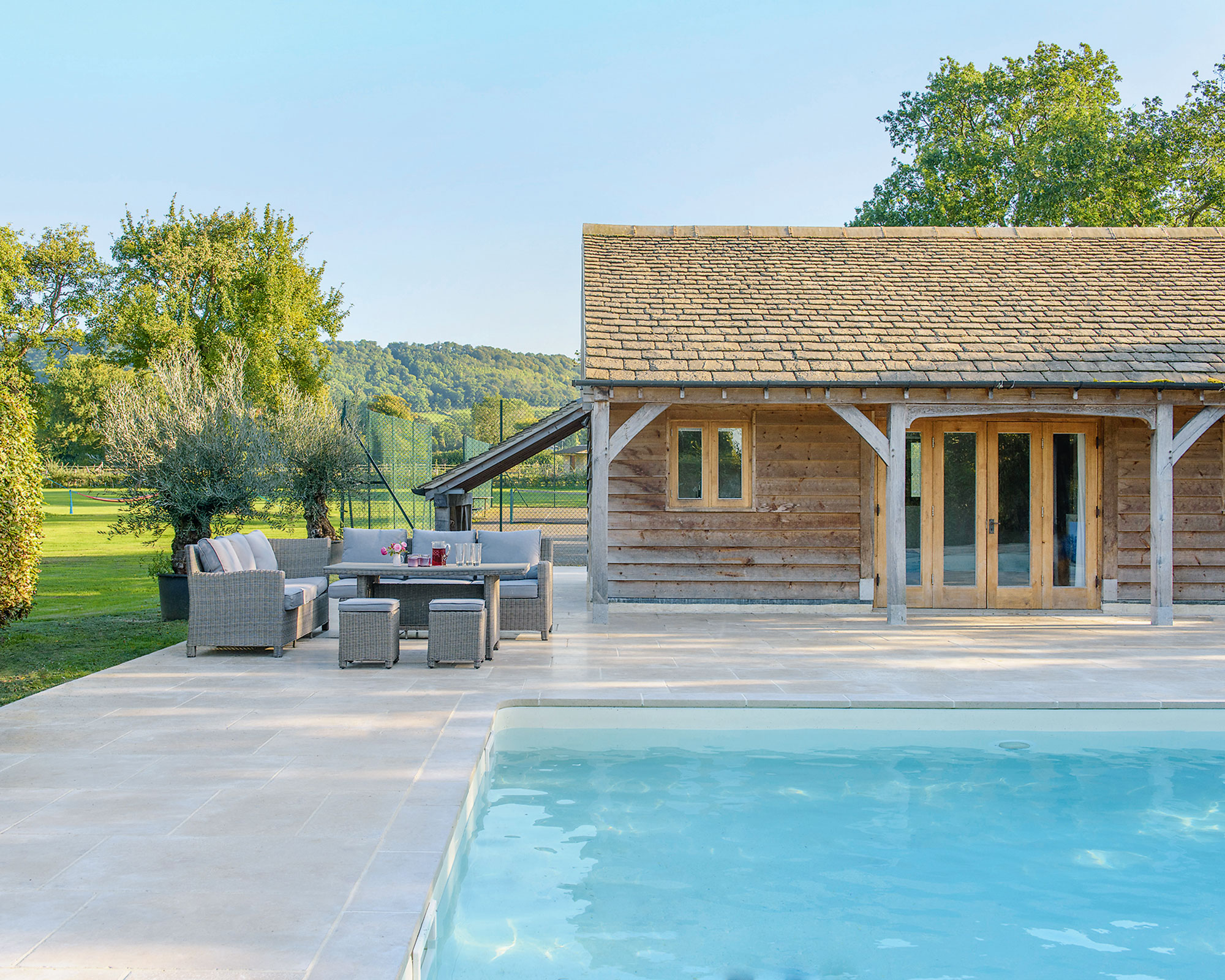

The question of 'why do algae grow in pools?' is one that all pool owners ask themselves fairly regularly.
Your pool has an undeniable list of benefits, from its cool relief in the summer to its rejuvenative properties that treat stress and injuries. It can, however, cause stress, too – most usually in the form of this organism (belonging to a group of living things called protists). They appear in pools in the shape of a green stain and often give the water a green tint – meaning they are impossible to miss.
But why do algae grow in pools? And how can you prevent quick growth in hot seasons? Here's what you need to know.
Why do algae grow in pools?
According to expert Dan Dougher from Above Ground Pools, algae grow anywhere with enough moisture, and unfortunately, your pool is a great environment for them to thrive. 'In reality, you cannot prevent algae from growing in pool water. You can only have a sanitizer (like chlorine) present to kill it as it begins to grow,' Dan says.
So, while it is unlikely that you can prevent algae from forming in your pool for good, there are ways to limit their growth – especially in summer when the temperature is most suitable for algae maturation.
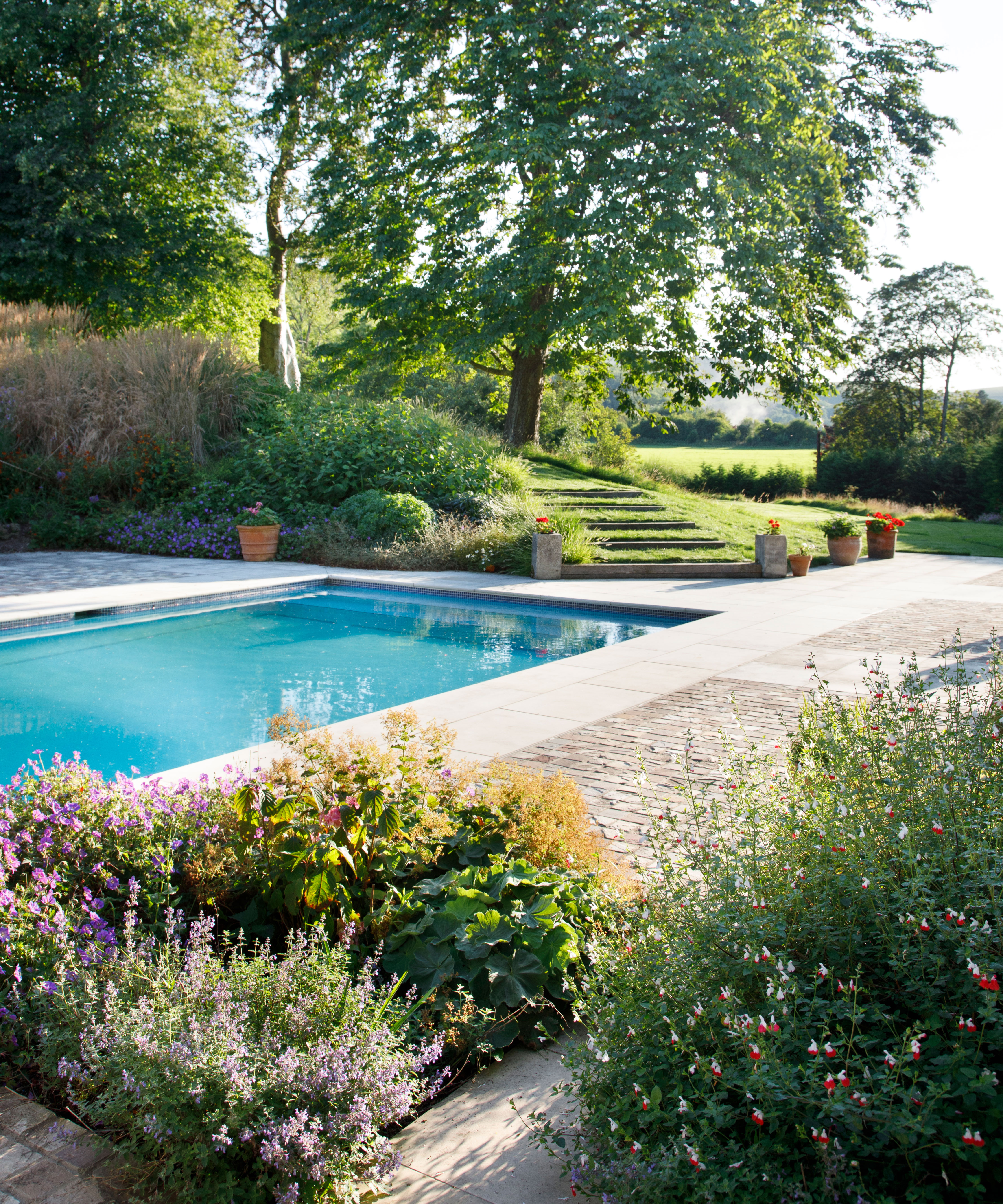
Adrian Harrison, Director at My Perfect Pool, similarly explains that algae growth is caused by lack of maintenance. Some key factors include low chlorine levels, excessive sediment in the water, and the failure to brush the pool walls and floor. Other problems could be in the lack of water circulation or high levels of phosphates and nitrogen in your water.
How do I prevent algae in my pool?
Knowing how to design a pool area is important, but keeping on top of your water's cleanliness is essential. And the first natural step in maintaining your pool is preventing algae in the water.
Adrian explains that there are three ways to prevent algae growth – from the correct stabilizer levels to an effective filtration and cleaning routine.
1. Correct stabilizer levels
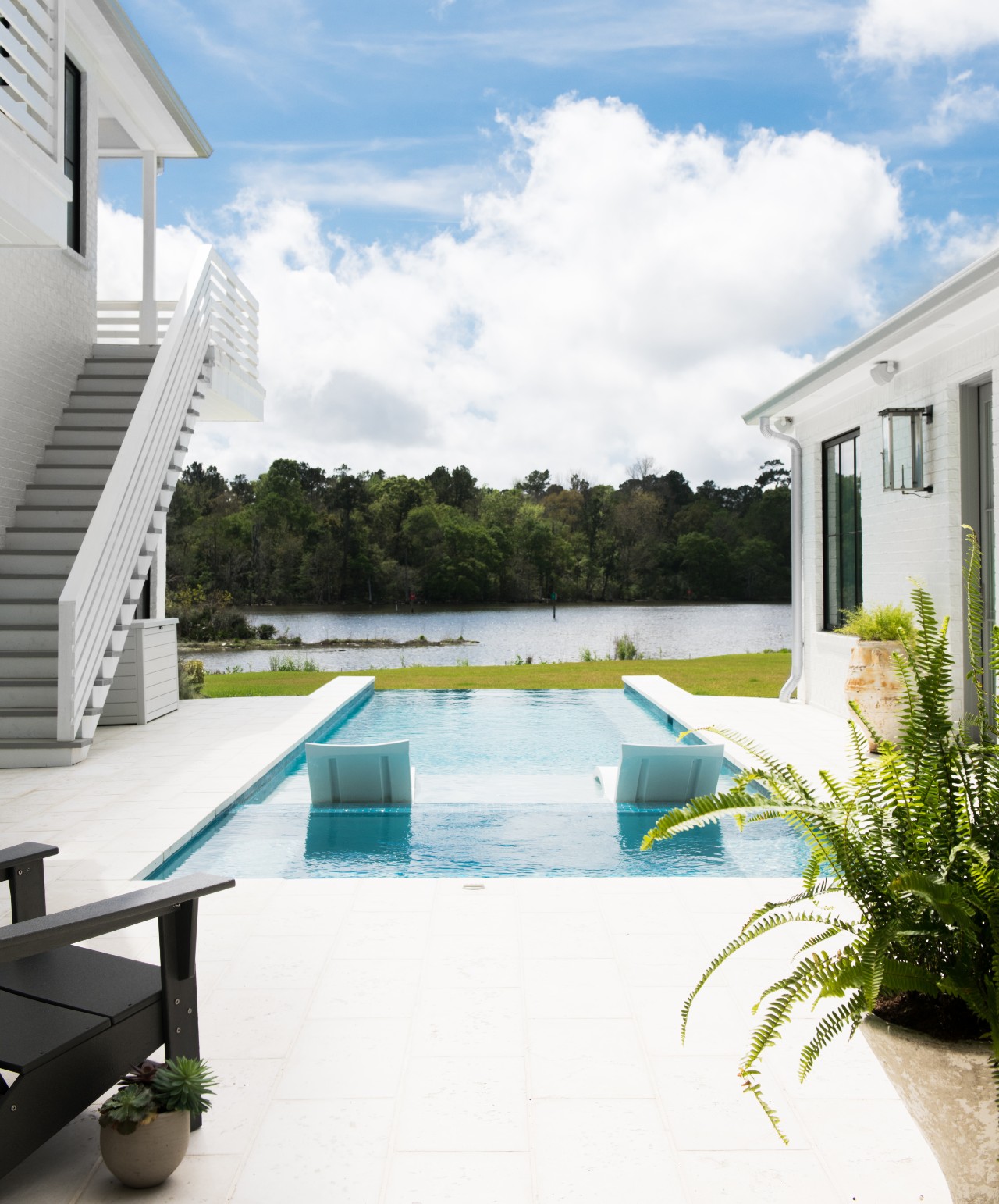
Your stabilizer levels should sit between 30-50 ppm. If this figure is any lower or higher, your pool is at risk of an algae outbreak.
'A big but common mistake pool owners make that can lead to algae is using the wrong chlorine,' the expert explains. 'Many pool owners overuse stabilized chlorine products such as dichlor and trichlor. This can result in too much stabilizer in the water.'
Adam recommends investing in a stabilizer [such as this one on Amazon] that will protect the chlorine from the sun's UV rays but warns that too much may have a negative effect.
'High stabilizer levels render chlorine far less effective,' he cautions. 'Switch to a non-stabilized form of chlorine-like liquid chlorine (bleach) or calcium hypochlorite (cal-hypo) if stabilizer levels are high.'
2. Control pH levels
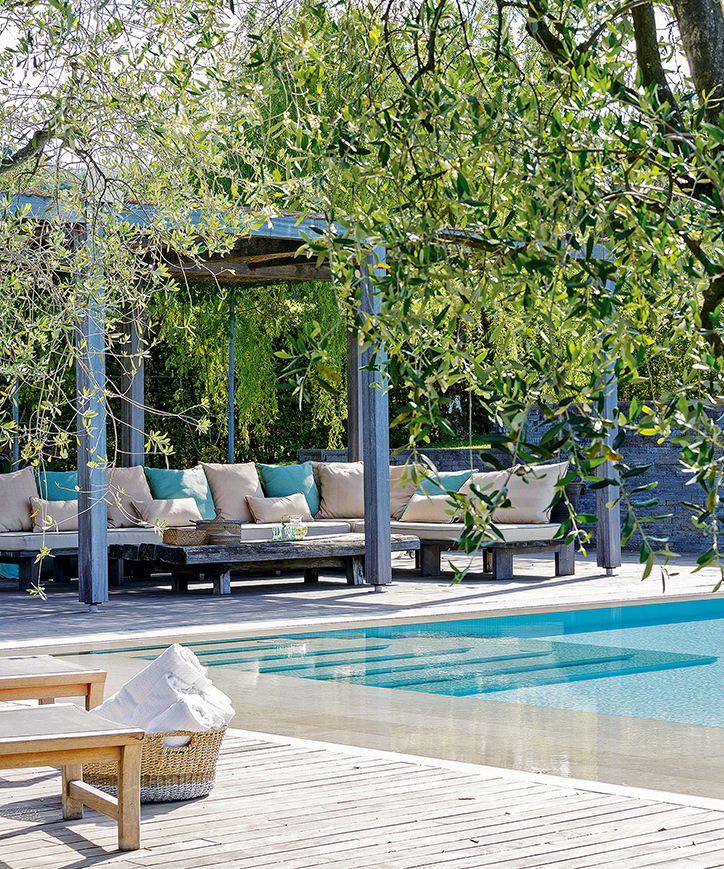
You may have heard that using baking soda in your pool is one way to control pH levels, but what else do the experts suggest? Adam recommends using muriatic acid to lower the pH – and the trusted baking soda method to raise the pH. The levels should be between 7.4-7.6.
'The pH levels of a pool must be balanced. High pH levels reduce the ability of chlorine to kill algae and other bacteria,' he adds.
3. Regular filtration and cleaning routine
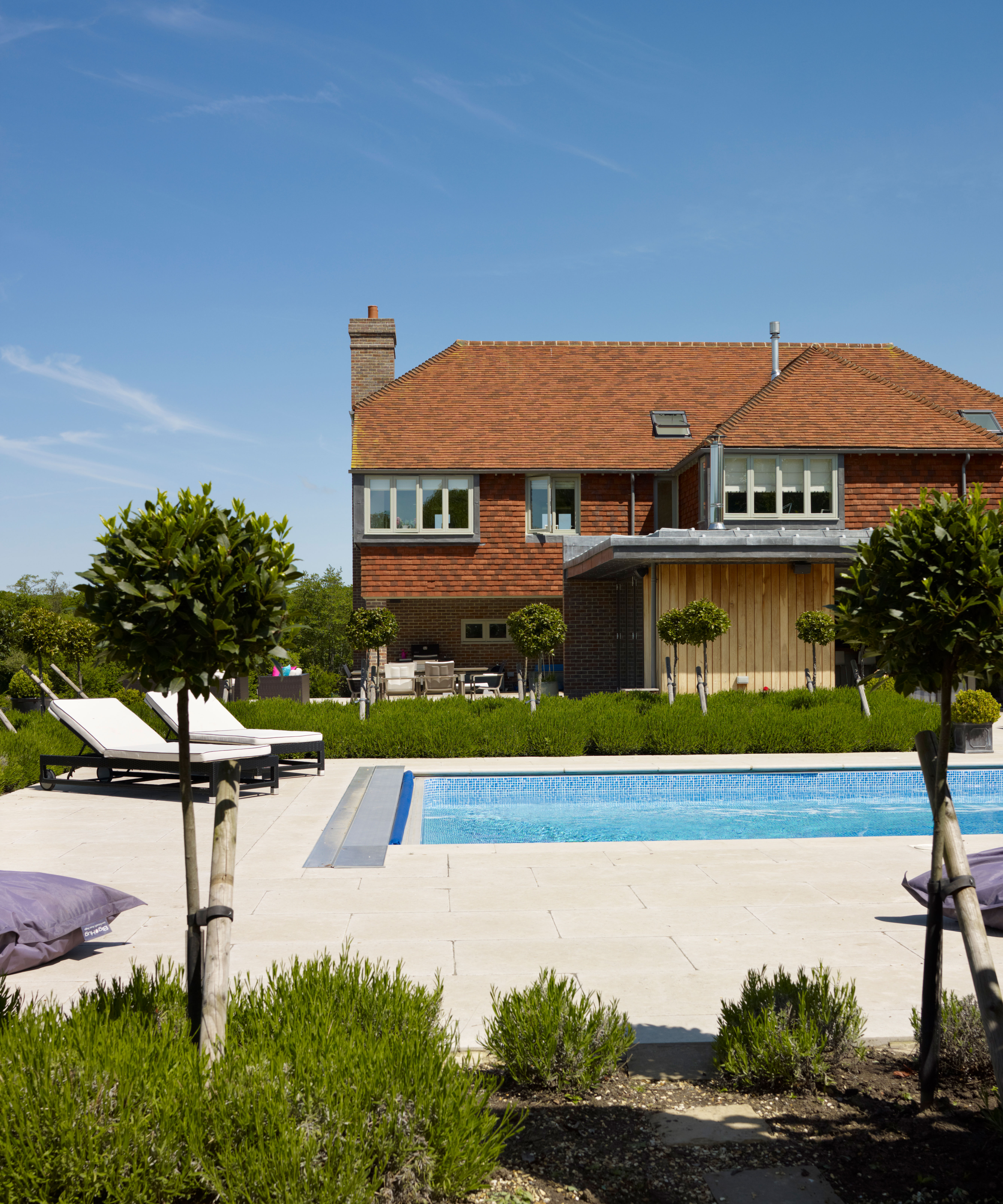
If you're wondering, 'how much does it cost to build a pool?' is an important factor in the expense of maintaining the feature after the project is complete. However, these costs are vital to keeping algae at bay.
'The final step in maintaining an algae-free pool is filtration, vacuuming, and brushing. [Meanwhile], filtering the water 8-12 hours per day in summer will help to remove food for algae and other organics from the water,' Adam says.
It is also a good idea to preserve your patio or pool deck ideas by brushing the pool walls and the surrounding floor once a week to remove any algae patches. Vacuuming sediment off the floor will help to remove any algae food.
Does chlorine stop algae?
Yes, chlorine can stop algae if the levels are kept at 1-5 ppm (and regular pool maintenance is maintained). 'To kill algae, chlorine is used in high doses. Adding high doses of chlorine to a pool is referred to as 'shocking' a pool,' the expert says. However, in some cases, shocking will need to be performed several times to kill algae efficiently.
It is also worth noting that some types of algae can grow even with the presence of chlorine. 'Yellow or mustard algae is an example of this,' Dan adds.
Can you swim in a pool with algae?
While it is undeniable that some people swim in water with algae frequently, experts caution against this practice. 'If a swimming pool has algae, it means that it's not being properly maintained. It may contain harmful bacteria like E-coli,' Adam says.
Additionally, it is a safety hazard if the water isn't clear and you can't see the bottom of the pool – meaning it is important to clear up the algae before taking a swim.
Sign up to the Homes & Gardens newsletter
Design expertise in your inbox – from inspiring decorating ideas and beautiful celebrity homes to practical gardening advice and shopping round-ups.

Megan is the Head of Celebrity Style News at Homes & Gardens, where she leads the celebrity/ news team. She has a history in interior design, travel, and news journalism, having lived and worked in New York, Paris, and, currently, London. Megan has bylines in Livingetc, The Telegraph, and IRK Magazine, and has interviewed the likes of Drew Barrymore, Ayesha Curry, Michelle Keegan, and Tan France, among others. She lives in a London apartment with her antique typewriter and an eclectic espresso cup collection, and dreams of a Kelly Wearstler-designed home.
-
 Ina Garten's storage pantry is an insightful window into all of the best cookware used by the chef – and it's easy to recreate on your kitchen shelves from $48
Ina Garten's storage pantry is an insightful window into all of the best cookware used by the chef – and it's easy to recreate on your kitchen shelves from $48The beautiful dishware in The Barefoot Contessa's Hamptons pantry showcases the tools she uses most often to cook – this is exactly how you replicate it
By Sophie Edwards Published
-
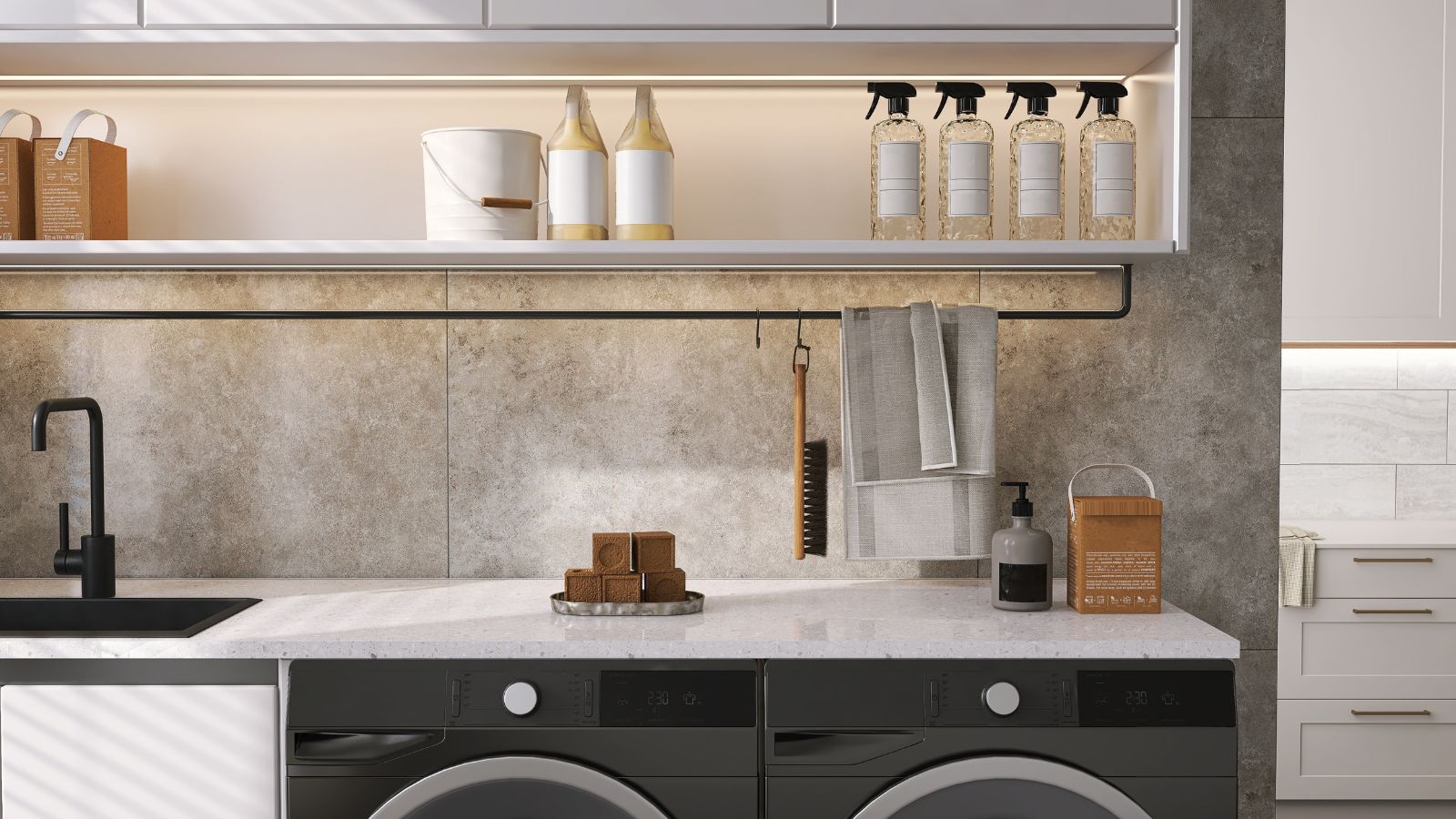 Extend the lifespan of your appliance with 5 simple but crucial washing machine maintenance tips
Extend the lifespan of your appliance with 5 simple but crucial washing machine maintenance tipsFrom cleaning the filters to keeping the door open, experts reveal the washer tips they swear by
By Andy van Terheyden Published